

May 1 – 7: “What proportion do thrillers represent of your overall reading?”
 We’ve got a full house to kick off May! This month we’re joined by ITW Members Karen Harper, S.W. Lauden, Sandra Block, Lisa Preston, William Lashner, Sam Wiebe, Sherry Knowlton and Sasscer Hill as they ponder the questions: “What proportion do thrillers represent of your overall reading? As a writer, do you read more non-fiction or genre fiction?”
We’ve got a full house to kick off May! This month we’re joined by ITW Members Karen Harper, S.W. Lauden, Sandra Block, Lisa Preston, William Lashner, Sam Wiebe, Sherry Knowlton and Sasscer Hill as they ponder the questions: “What proportion do thrillers represent of your overall reading? As a writer, do you read more non-fiction or genre fiction?”
~~~~~
 Karen Harper is the New York Times and USA TODAY bestselling author of contemporary suspense and historical fiction. A former high school and university English instructor, she has been published since 1982. Harper is the winner of the Mary Higgin’s Clark Award. She and her husband have lived in both Ohio and South Florida the last 30 years. Her books have been translated into many languages. Her novels are available in hard cover, paperback and ebook.
Karen Harper is the New York Times and USA TODAY bestselling author of contemporary suspense and historical fiction. A former high school and university English instructor, she has been published since 1982. Harper is the winner of the Mary Higgin’s Clark Award. She and her husband have lived in both Ohio and South Florida the last 30 years. Her books have been translated into many languages. Her novels are available in hard cover, paperback and ebook.
 Sandra A. Block graduated from college at Harvard, then returned to her native land of Buffalo, New York for medical training and never left. She is a practicing neurologist and proud Sabres fan, and lives at home with her husband, two children, and impetuous yellow lab Delilah. She has been published in both medical and poetry journals. Little Black Lies was a finalist for Best First Novel ITW award. The Girl Without a Name in the second, and The Secret Room the last in the series.
Sandra A. Block graduated from college at Harvard, then returned to her native land of Buffalo, New York for medical training and never left. She is a practicing neurologist and proud Sabres fan, and lives at home with her husband, two children, and impetuous yellow lab Delilah. She has been published in both medical and poetry journals. Little Black Lies was a finalist for Best First Novel ITW award. The Girl Without a Name in the second, and The Secret Room the last in the series.
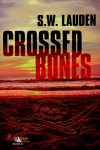 S.W. Lauden’s short fiction has been published by Out of the Gutter, Criminal Element, Dark Corners, Dead Guns Magazine, Akashic Books, WeirdBook, Spelk Fiction, Shotgun Honey and Crimespree Magazine. His debut novel, Bad Citizen Corporation, was published in November 2015 by Rare Bird Books. The second Greg Salem novel, Grizzly Season, was published in October 2016. The first Tommy Ruzzo novella, Crosswise, was published in March 2016 by Down & Out Books.
S.W. Lauden’s short fiction has been published by Out of the Gutter, Criminal Element, Dark Corners, Dead Guns Magazine, Akashic Books, WeirdBook, Spelk Fiction, Shotgun Honey and Crimespree Magazine. His debut novel, Bad Citizen Corporation, was published in November 2015 by Rare Bird Books. The second Greg Salem novel, Grizzly Season, was published in October 2016. The first Tommy Ruzzo novella, Crosswise, was published in March 2016 by Down & Out Books.
 Sasscer Hill, formerly an amateur jockey, was an owner and breeder of racehorses for decades. Her multiple award-nominated mystery and suspense thrillers are set against a background of big money, gambling, and horse racing. Her new “Fia McKee” series, to be published by St. Martins, Minotaur, won the 2015 Carrie McCray Competition for Best First Chapter of a Novel and was a runner up for the 2015 Claymore Award.
Sasscer Hill, formerly an amateur jockey, was an owner and breeder of racehorses for decades. Her multiple award-nominated mystery and suspense thrillers are set against a background of big money, gambling, and horse racing. Her new “Fia McKee” series, to be published by St. Martins, Minotaur, won the 2015 Carrie McCray Competition for Best First Chapter of a Novel and was a runner up for the 2015 Claymore Award.
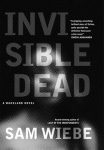 Sam Wiebe is the author of the Vancouver crime novels Last of the Independents, Invisible Dead, and Cut You Down (forthcoming, February 2018). Wiebe’s work has won the Arthur Ellis award and the Kobo Emerging Writers Prize, and he was the 2016 Vancouver Public Library Writer in Residence. His short fiction has appeared in ThugLit, Spinetingler, and subTerrain, among other places.
Sam Wiebe is the author of the Vancouver crime novels Last of the Independents, Invisible Dead, and Cut You Down (forthcoming, February 2018). Wiebe’s work has won the Arthur Ellis award and the Kobo Emerging Writers Prize, and he was the 2016 Vancouver Public Library Writer in Residence. His short fiction has appeared in ThugLit, Spinetingler, and subTerrain, among other places.
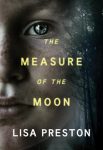 Lisa Preston’s experiences as a mountain climber, fire department paramedic and police sergeant are channeled into fiction that is suspenseful, fast-paced, and well acquainted with human drama. She has lived in Arizona, California and Alaska and now makes her home in western Washington.
Lisa Preston’s experiences as a mountain climber, fire department paramedic and police sergeant are channeled into fiction that is suspenseful, fast-paced, and well acquainted with human drama. She has lived in Arizona, California and Alaska and now makes her home in western Washington.
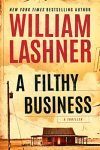 William Lashner is the New York Times bestselling author of THE FOUR NIGHT RUN, GUARANTEED HEROES and THE BARKEEP, as well as the Victor Carl legal thrillers, which have been translated into more than a dozen languages and sold across the globe. THE BARKEEP, nominated for an Edgar Award, was an Amazon and Digital Book World #1 bestseller. Before retiring from law to write full-time, Lashner was a prosecutor with the Department of Justice in Washington, DC. He is a graduate of the Iowa Writers’ Workshop.
William Lashner is the New York Times bestselling author of THE FOUR NIGHT RUN, GUARANTEED HEROES and THE BARKEEP, as well as the Victor Carl legal thrillers, which have been translated into more than a dozen languages and sold across the globe. THE BARKEEP, nominated for an Edgar Award, was an Amazon and Digital Book World #1 bestseller. Before retiring from law to write full-time, Lashner was a prosecutor with the Department of Justice in Washington, DC. He is a graduate of the Iowa Writers’ Workshop.
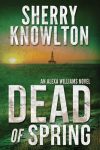 Sherry Knowlton, author of the Alexa Williams suspense novels, Dead of Autumn, Dead of Summer and Dead of Spring (release April 22, 2017) was born and raised in small-town Pennsylvania where she developed a lifelong passion for books. She was that kid who would sneak a flashlight to bed at night so she could read beneath the covers. All the local librarians knew her by name.
Sherry Knowlton, author of the Alexa Williams suspense novels, Dead of Autumn, Dead of Summer and Dead of Spring (release April 22, 2017) was born and raised in small-town Pennsylvania where she developed a lifelong passion for books. She was that kid who would sneak a flashlight to bed at night so she could read beneath the covers. All the local librarians knew her by name.
- LAST GIRL MISSING with K.L. Murphy - July 25, 2024
- CHILD OF DUST with Yigal Zur - July 25, 2024
- THE RAVENWOOD CONSPIRACY with Michael Siverling - July 19, 2024
